Numb. Refugees in Lesvos… Day Five.
- erinschrode
- Oct 29, 2015
- 5 min read
I am numb, to tell you the truth. Today was a blur, after the horrors of last night and early morning. 66 bodies were found floating in the water following the refugee shipwreck, I was told directly by a friend of the coastguard captain, who broke down in talking about the fatalities. 66 human beings died while making the short sea passage from Turkey here to Lesvos, Greece. 66 lives were cut short, never reaching the prized European soil for which they risked it all. 66 families are now destroyed, leaving children without parents and parents without children, some without so much as a single relative on this continent. Of the 242 who were miraculously rescued by the coastguard and brought ashore to us – in Greek’s largest maritime disaster in years – not all survived. Babies died in the hands of doctors on the dark docks, in front of devastated parents who begged and pleaded for them to do more, but it was already too late.
Does my tone sound different? Because I feel different. I feel profoundly sad on a number of levels. I feel for the people forced to flee horrific violence and acute persecution in their homelands, only to face widespread abuse and intense discrimination as refugees journeying to and across Europe. I feel heartbroken that people perish and tear apart families in the daring quest to create a better life for themselves and their loved ones. I feel let down that the world and global governments have allowed this catastrophe to intensify with very little action, neither adequately addressing the root causes of the masses of refugees nor aiding the suffering displaced people. I feel upset that mainstream media has all but ceased coverage of this unfathomable crisis, which is only worsening by the day and season. I feel angry at the smugglers who take advantage of these vulnerable individuals, price gauge, force people to sleep in inhumane conditions while awaiting phantom departures, and overpack shoddy boats with lies of trained captains and short, placid journeys. I feel disappointed that large well-supported aid organizations are not effective enough in helping where needed most and properly distributing resources. I feel frustrated for the Greeks here on Lesvos, who are caught in the crossfire, shocked by the influx of refugees clearly in need of help and jarred by the unavoidable death and tragedy quite literally coming upon them, but also bare the burden of soon-to-be half a million refugees coming to, spending time on, and crossing their little landmass, which already severely lacks infrastructure (dirt roads, one ambulance, no general practitioner within hours of Molyvos, etc.) in the struggling nation and fear that a stigma will be attached to an island economy which depends solely upon tourism. I only came to understand this additional layer of complexity through in-depth conversations today: one with Spiros, a Greek man who operates the apartment where we are staying and spent decades living in Australia, and Panos, who runs the property, and another over dinner with Dirk, a Dutch man who has run travel tours for decades, built a home on Lesvos years ago, gotten very involved in relief efforts, and owns the Oxy nightclub which he handed over without reservation to various aid organizations to turn the land into Oxy transit camp, a pivotal first stop for refugees.
So what did my day consist of? I know that I ate clove-covered-almond-stuffed-fresh-roasted-figs for breakfast while learning to make delicious fresh olives from a local Greek man: pick when almost ripe from a local tree (there are over 20 million on this island alone! No joke!), split open with a hammer (mastering the technique only took me 47 attempts; he wears a bib to avoid olive juice perfume – or stains), toss into a bucket to soak, change water daily, add salt, and, after one week, voila! Food is always a good temporary distraction. I also had a rather epic Greek salad, creamy fava bean dip, and tomato-garlic oven-roasted eggplant, which has become my usual in this one-meal-a-day-because-I-am-working-around-the-clock-and-refuse-to-stop diet.
We drove to the northern coastline and took a beach walk while awaiting the arrival of a boat I spotted a few kilometers offshore – and discovered treasures: an Iran passport cover, a few pages from an Afghan passport, the passport title page of an Afghan in Iran explicitly stating that he was unemployable, mini passport photos for an entire family, printed and stamped pages for various border crossings or passages (likely illegal), a laminated page of the holy Koran. Two Spanish lifeguards, a British journalist, Jodi and myself waved discarded orange lifejackets-turned-flags to signal the boat. It came ashore in the most successful refugee arrival I have witnessed to date: calm waters, early afternoon sunshine, no punctures to the rubber dingy or motor failure, all still aboard without overwhelming injury or sickness, landing on an easily accessible stretch of flat beach, only a couple of feet of water inside boat, knee-high lapping waves to wade through, and a greeting crew with open arms. Yes, a soaking wet arrival in a foreign land is indeed good, when you are alive, together, and directed where to go next, albeit in broken Arabic or Farsi (there were no skilled translators at the remote site at that time). An elderly woman had to be carried out of the boat, her legs too cold and weak to carry her weight; we took her straight to our car, followed closely by her two daughters, granddaughter, and great-grandson. After providing dry socks and shoes to the dozen or so precious children on board, all of whose families are deeply grateful for any and all assistance, we raced the shivering Afghan woman and her family (including the little boy with a clear fever) to Skala transit camp, a few kilometers east along the coastal road and two kilometers up a steep steep hill, which hundreds were climbing on foot. The youngest daughter spoke the best English I have heard, an 18-year-old who took English language classes that she looooved in Kabul, before they left Afghanistan for Iran, then Turkey, then here. Her father had died and her mother was too old to work, so the family struggled to survive. All that she wants to do is study and practice tae kwon do, in which she is a double black belt! She doesn’t know where the four women are heading, but some destination with lovely people, the opportunity to learn, and good food; she clearly has her priorities straight! I filmed a fantastic short video speaking to her, while Jodi drove and asked questions, which I will try to post soon.
We clothed and shoed many children and shuttled families with newborns back and forth from the shore or early stages of their treks to various transit camps or bus stops on the island, increasingly over capacity and debris ridden. Pulling over to offer rides to unexpecting passengers brings sheer delight to all. I want to tell you their individual stories – tales of these faces, these humans, these heroes – but in all honesty, I cannot remember too much from this day.
I struggle with that very fact. How I am this beat, this emotionally drained, this crushed (tears are welled up in my tired eyes as I type, once again) after only five days on Lesvos? I am not suffering, not fleeing, not living the horror unfolding for too many around me. I honestly do not know how these refugees show such fortitude, bravery, determination, hope; it inspires me beyond words and is the sole reason I rise each day – with a bright spirit, multifaceted strength, and newfound vigor. I am here for them, with them, in service of them… in fact, there is no them. This is an 'us.'







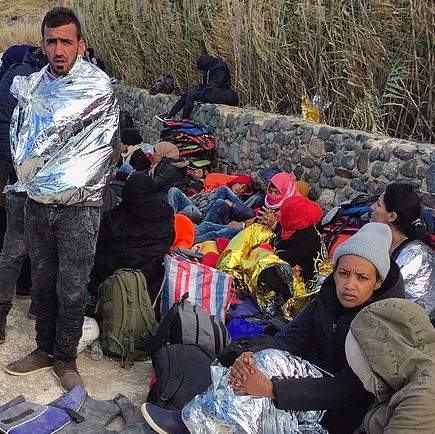

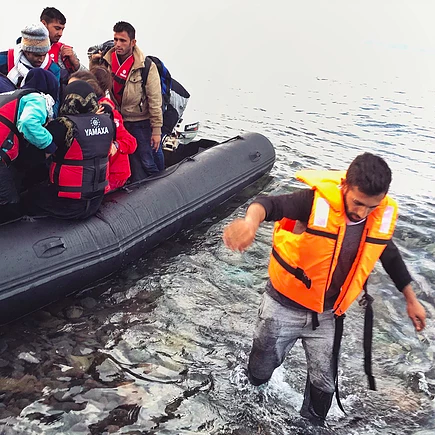

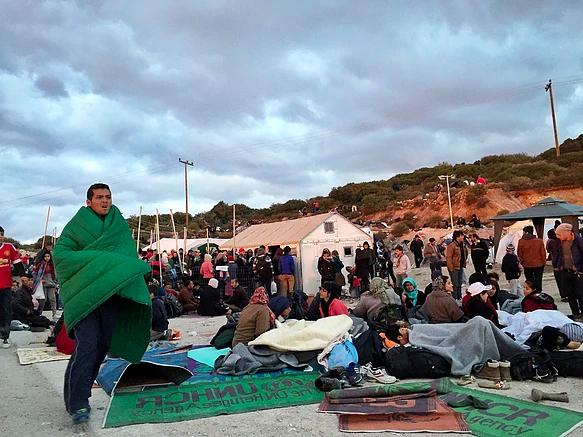

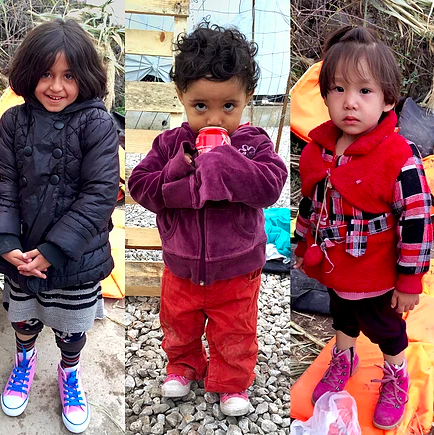

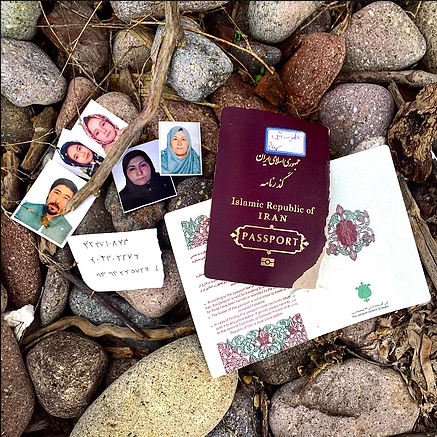
Comments